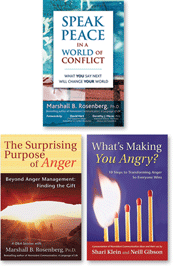How to Handle Angry Criticism, continued
If so, would you like to have choices other than just clamming up, running for the hills, or screaming back to defend yourself? If you would, there are two places we invite you to explore that will make a difference whenever you find yourself reacting in these ways. They are: In Here and Out There.
The space between your ears is the first place to look if you begin to experience discomfort at these times. This is where you'll discover the beliefs that are at the core of the problems you think are being created "out there."
We'll explore this idea using the example of para-surfing. If you've ever seen someone para-surfing you know it's done using a small para-sail to pull the rider across the waves on their surfboard.
In our example, your thoughts will be represented by the para-surfing equipment and the breeze and surf will represent what's going on "out there."
It's obvious that if you don't know how to control the para-sail, it's unlikely that you will be able keep your balance, let alone control where you're going. And in this same way, balance is critical if you want to stay in control of your reactions and the direction the situation is headed when someone is loudly expressing their upset at you.
Imagine standing on the surfboard, with no force pushing on you, the surfboard or the para-sail, perfectly balanced. Very Zen-like, but you're not going anywhere are you?
The fun begins when the breeze catches the para-sail and you feel the pull of the water under the surfboard. In that instance you begin to fall forward - and unless you regain your balance quickly, you're about to get wet.
So you adjust your balance, control the shape of the para-sail in the wind, and you're off. But then the breeze shifts, the waves rise and you're starting to fall again, so you regain your balance play with the control lines, and then you're falling, and then . . .
Two things are essential if you want to keep your emotional balance in the face of strong criticism. First, you need to identify the very moment that you start feeling discomfort of any sort (falling). Second, you need the skills to regain your emotional balance in a split second.
This first part - being able to identify the very moment you start feeling uncomfortable - is actually harder than it may sound.
In studies conducted to help reduce police violence, officers were questioned closely about the events leading up to such incidents. To their surprise they discovered there were usually five verbal exchanges that happened before the violence occurred.
Though highly trained in their profession, these policemen weren't even aware that these exchanges had happened until they were probed. Once they become conscious of this they realized that the violence might have been avoided if any these exchanges had been handled differently. They recognized that just hadn't responded to the escalating tension soon enough.
Like these officers, you have an emotional guidance system which is designed to alert you the instant a situation begins to get out of balance. In our example, your emotions are much like the lines used to control the para-sail. They let you know what you need to do to prevent you from falling and how to take charge of the direction of your thinking.
It's when you learn to accurately respond to the way you feel - the lines - that you gain control of your thinking - the para-sail. This is how you keep your balance and control the direction your situation is heading.
Unfortunately very few of us are trained how to make the best use of our emotional guidance system, how our emotions relate to our thinking, or how together we can use these to stay in control our actions and our circumstances.
Most of us grow up with the experience of being subject to our circumstances, dragged through life - into and out of one situation after another - helpless to do anything but hang on and hope for the best.
Or worse yet: we've been misled about our emotional guidance system - what these control lines are designed to do and how to make best use of them. We learned that "being emotional" is a "bad thing," "the best defense is a good offence," "it's a dog-eat-dog world," and countless other ideas that taught us how to react to situations rather than how to respond to them.
This leads us back to the second thing we believe is essential for keeping your emotional balance in the face of angry criticism. You must have learned and practiced the skills required to regain your emotional balance in an instant.
This is basically the same as learning to maintain control of the shape of para-sail in the ever-shifting breeze. It can be accomplished by learning how to make a conscious choice about which belief will govern your thoughts and actions, moment-by-moment.
Not only does this usually require you to un-learn prior beliefs, it also means you must learn to formulate and practice new beliefs that will serve you better in even the most challenging of situations.
We call this the process of developing your Values Intelligence - your ability to improve your knowledge of what you value, and then choose to take only those actions that conform to what you value most, regardless of your circumstance.
Without these skills it is likely that - like the police officers we mentioned - you'll be unable to recognize when things are going wrong soon enough to make a conscious choice and respond in ways that prevent upsets from escalating into critical problems.
If you're ready to do whatever it takes to develop your Values Intelligence so you can stop melting down, shutting up, or flipping out in the face of angry criticism, then please take a look at our online ecourse: The Art of Conscious Connection. It's specifically designed to give you the "In Here" skills you need to start gaining more control of what's happening "Out There".
Neill Gibson is co-author of the PuddleDancer Press booklet What's Making You Angry? He and Beth Banning are the founders of Focused Attention Incorporated. They work with people ready to have more freedom, effectiveness and joy in their relationships, in all areas of their life. They can help you discover how you can get more of what you want in life in ways that everyone enjoys. They invite you to sign up for their Free Weekly Email Tip Series.
Keep learning these vital communication skills with these books and training resources:




